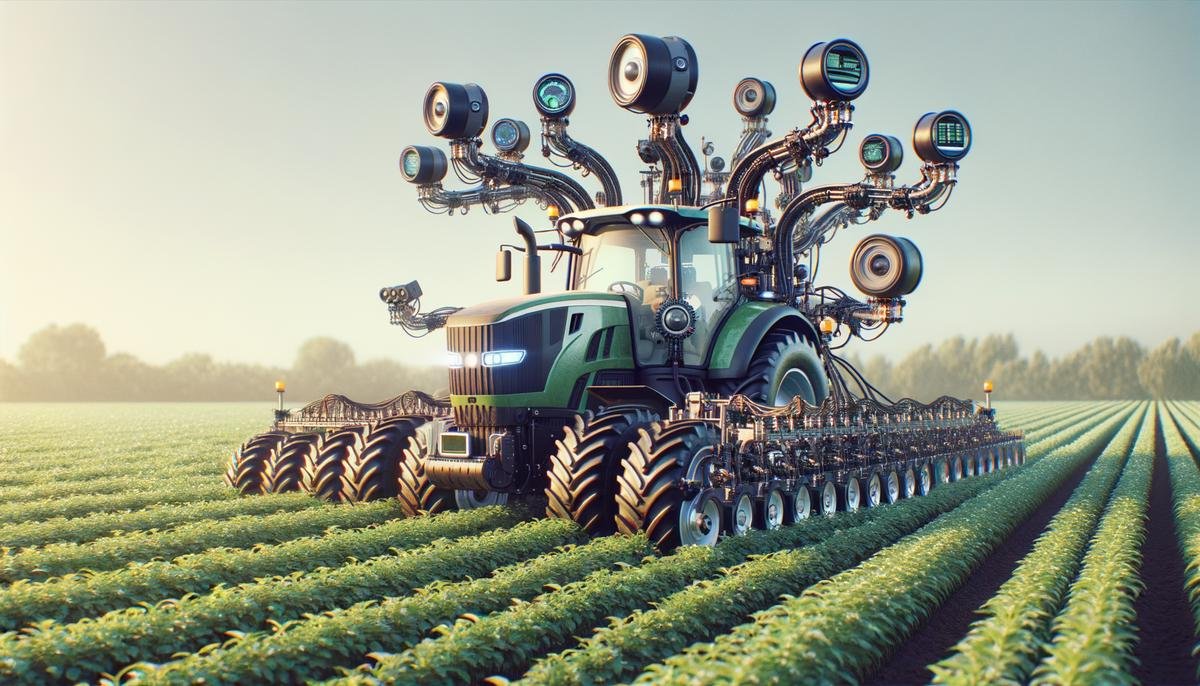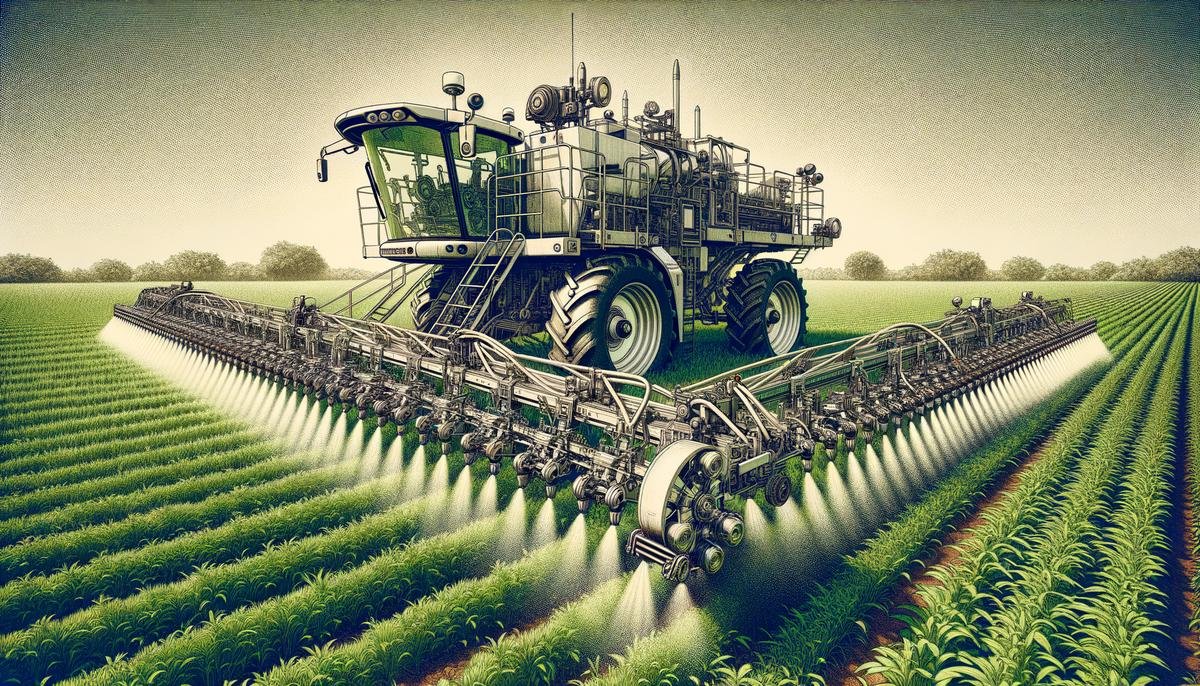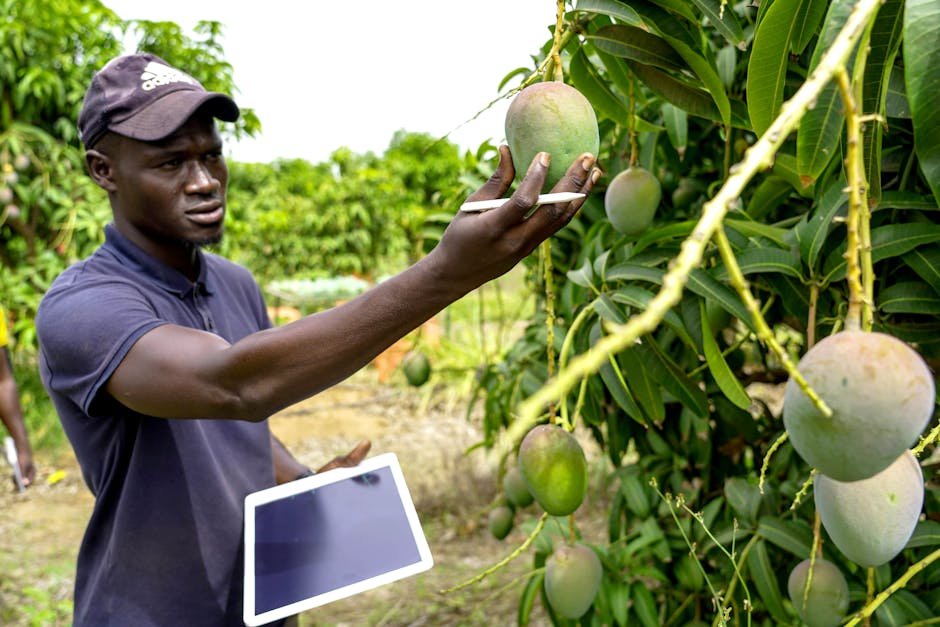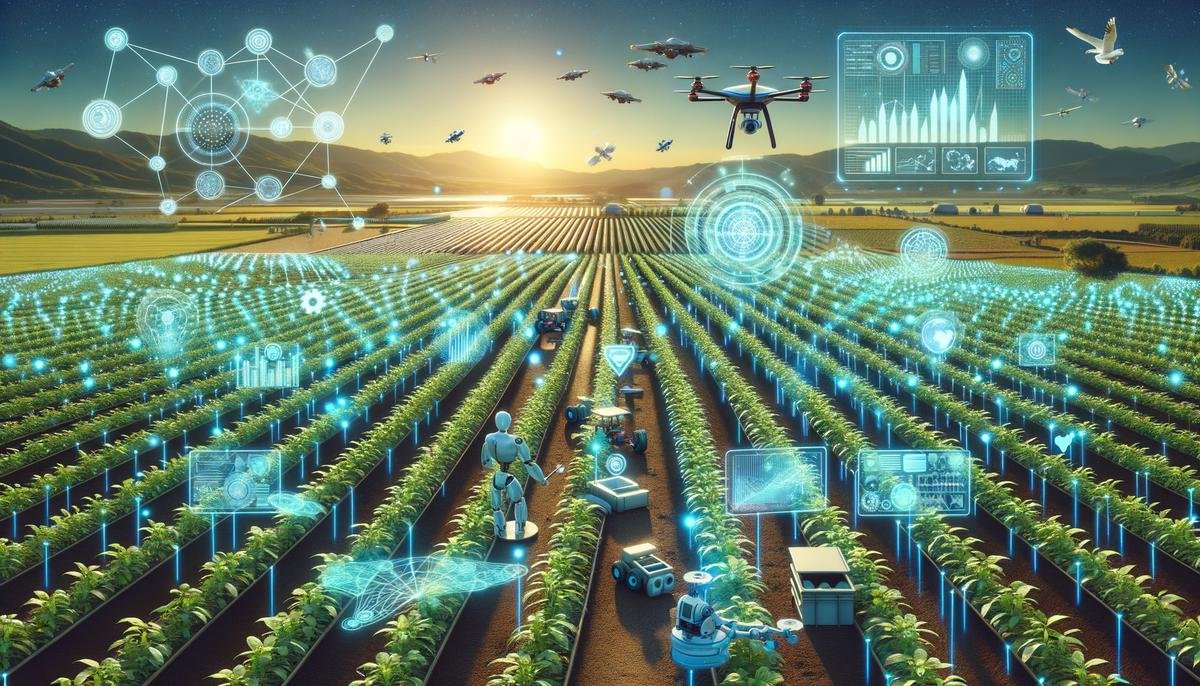Precision Agriculture with AI
Precision agriculture uses advanced technology for crop management, transforming fields into smart farms. AI-driven machinery offers improved crop yields while reducing herbicide use. Technologies like computer vision and machine learning allow for targeted treatment of plants, cutting pesticide use by up to 95%.
Drones scan farms, capturing images that AI analyzes to identify soil issues and crop health problems. AI sensors detect diseases or pest problems early, allowing for prompt action. This technology helps farmers optimize water and nutrient application, as well as seed placement.
Agricultural robotics handle repetitive tasks, freeing farmers to focus on strategic decisions. This combination of traditional farming knowledge with technology creates a more resilient agricultural system, meeting the challenges of a growing global population.
Precision agriculture also improves profitability. Predictive models help farmers choose crop varieties and determine ideal planting times. AI-driven insights enable better handling of commodity price fluctuations and clearer understanding of field conditions.

Blue River Technology's Innovations
Blue River Technology's "see and spray" technology is a standout innovation in precision agriculture. This machine differentiates between crops and weeds, applying herbicides only to unwanted plants. This targeted approach reduces herbicide usage by up to 95%, benefiting both farmers' budgets and the environment.
The focused weed control leads to healthier fields and higher crop yields. Blue River Technology's approach demonstrates how AI can make farming smarter, more efficient, and more sustainable. Their solutions are transforming agriculture across various crops, from cotton to soybeans, helping meet the demands of a growing global population.

Economic and Environmental Impact
AI-driven precision agriculture offers significant cost savings for farmers and benefits for the environment. The reduction in herbicide usage cuts expenses and allows farmers to reinvest in other areas of operation. This financial flexibility enables exploration of sustainable farming practices previously considered too costly or risky.
The environmental impact is substantial. Reduced chemical usage means:
- Less damage to surrounding ecosystems
- Improved water quality
- Better soil health
AI technology also optimizes resource distribution, ensuring efficient use of water, fertilizer, and energy. This leads to increased crop productivity while minimizing waste and environmental impact.
These practices pave the way for a future where farm economic vitality and environmental health are in harmony. Farmers can achieve financial stability while responsibly managing their land, demonstrating how modern agriculture can be both productive and sustainable.

Future of AI in Agriculture
The future of AI in agriculture involves interconnected IoT systems and predictive analytics optimizing farming operations. Sensors will provide real-time feedback on soil conditions and plant health, enabling precise interventions. Predictive analytics will help farmers forecast weather changes, pest outbreaks, and market fluctuations, allowing for more informed decision-making.
Advanced agricultural robotics will work alongside farmers, performing tasks with precision and speed. This will allow farmers to focus more on strategic planning and innovation. The integration of AI addresses the need to feed a growing global population sustainably by maximizing limited resources.
IoT networks will facilitate collaborative farming, with data sharing across regions informing larger agricultural policies and innovations. This connectivity will contribute to a global community working towards a sustainable food system.
"Seventy percent of it is going to come from technology, and we need to do it in the most sustainable way possible."
As agriculture embraces these technological advancements, AI stands out as a key factor in redefining farming practices and offering a promising outlook for sustainable productivity. Market research predicts the number of data points gathered on an average farm will grow from 190,000 today to 4.1 million in 2050, highlighting the increasing role of AI in agricultural data analysis.1

- Business Insider. Market research on agricultural data points growth.




